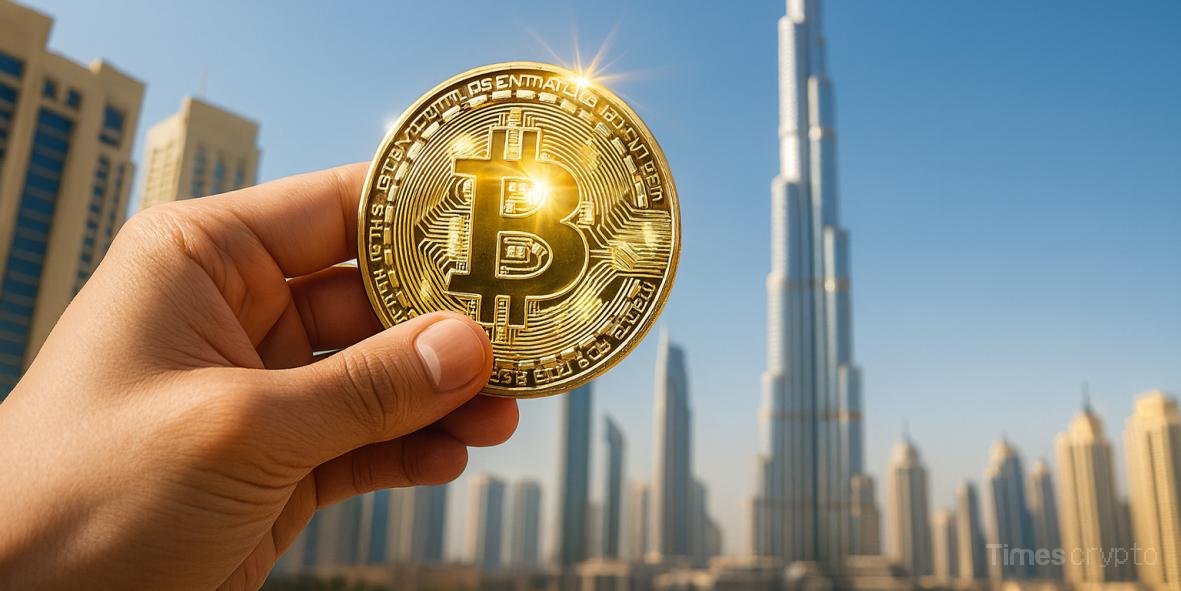Key Takeaways:
- The United Arab Emirates (UAE) became the 4th largest government holder of Bitcoin (BTC), most of which came through mining operations rather than seizures.
- Citadel Mining, which is majorly owned by the Abu Dhabi royal family, has reportedly mined over 9,300 BTC to date and currently retains 6,335 BTC in reserves.
- An Abu Dhabi state-backed fund, MGX, had invested $2 billion into Binance.
The United Arab Emirates (UAE) became the world’s fourth-largest government Bitcoin (BTC) holder, with reserves valued over $699 million at current prices, according to blockchain analytics firm Arkham Intelligence.
Arkham revealed that the UAE controls approximately 6,335 BTC through its government-backed mining company, Citadel Mining, making this the first time the country’s on-chain holdings have been publicly confirmed.
Mining, Not Seizures
Unlike other major BTC holding nations such as the U.S, the United Kingdom and China, which acquired the majority of BTC through law enforcement seizures, the UAE has taken an active role in building its reserves directly through BTC mining rather than seizures.
UAE has taken a majority stake in Citadel Mining through 2pointzero, which owns 85% of Citadel Mining. 2pointzero, on the other hand, is 100% owned by International Holding Company (IHC) and the UAE Royal Group owns 61% in IHC, which is a conglomerate owned by Sheikh Tahnoon bin Zayed Al Nahyan, of Abu Dhabi’s royal family. According to Arkham Intelligence, Citadel Mining has reportedly mined over 9,300 BTC to date, retaining at least 6,335 BTC in reserves.

This effort is part of the UAE’s wider ambition to diversify its economy and establish itself as a crypto and blockchain hub. Arkham reported that Citadel Mining entered into a collaboration with the Phoenix Group, which is a UAE-based public company and also into BTC mining to build an 80,000-square-meter Bitcoin mining facility on Al Reem Island, which was completed in 2022 within 6 months.
A Crypto-Friendly State
The UAE was one of the first countries in the Middle East to regulate the crypto industry. In 2018, the Abu Dhabi government established a commission to research cryptocurrency and its impact on the economy. Then in 2020, the Securities and Commodities Authority (SCA) issued the Crypto Assets Activities Regulation (CAAR), which oversees things like ICOs, exchanges, custodians, and crypto trading platforms at the federal level.
Followed by this, Dubai launched the Virtual Assets Regulatory Authority (VARA) after passing the Virtual Assets Law. VARA was responsible for supervising crypto-related businesses in Dubai. VARA was the world’s first virtual asset regulator.
Moreover, in March 2025, Abu Dhabi-backed state fund MGX invested nearly $2 billion in Binance, signifying its leadership in the crypto ecosystem. The Abu Dhabi Global Market (ADGM), which is responsible for regulating financial services, fintech and digital assets-based companies, announced a strategic partnership with Chainlink.
ADGM has collaborated with Chainlink to improve compliant tokenization frameworks, leveraging their $19 trillion+ interoperability and data solutions. The alliance’s goal is to accelerate blockchain innovation in the UAE through regulatory conversation, workshops, and secure adoption of tokenized assets.
For now, with nearly $700 million in BTC reserves, the UAE stands behind only the U.S., China, and the U.K. in sovereign Bitcoin holdings, a strong indication of its growing role in the digital asset economy.







